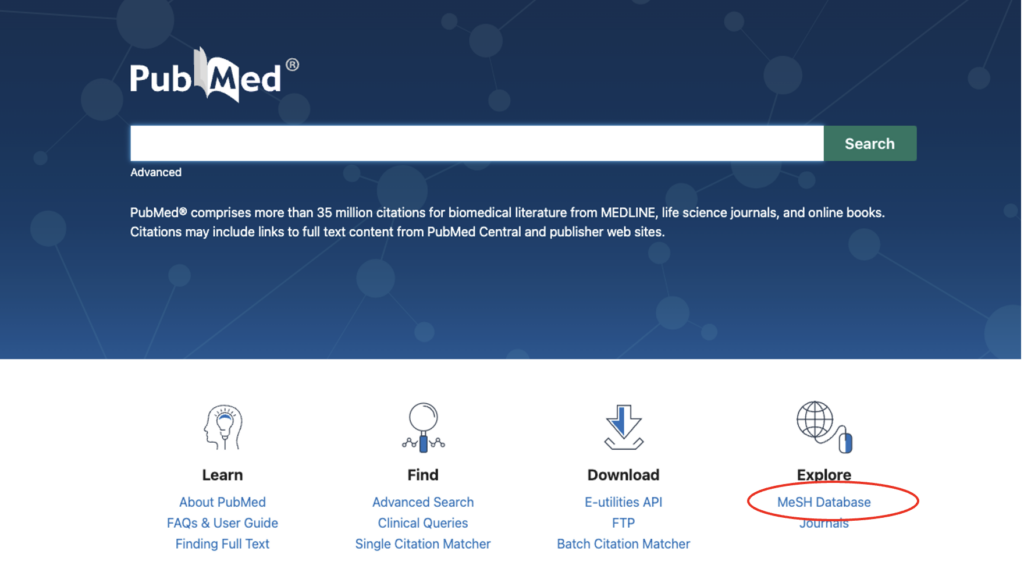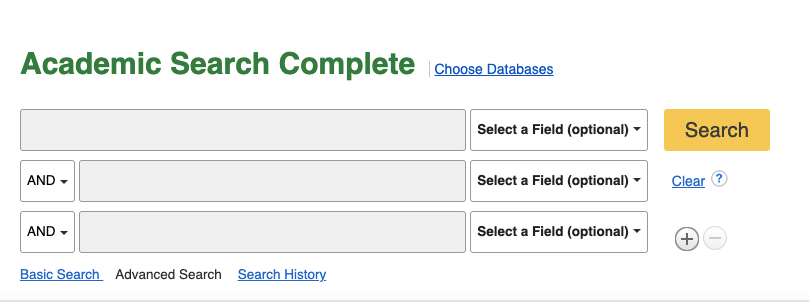Search Strategy
Develop an effective search strategy to get the best results when searching databases and other research tools.
Keyword Searching
A keyword search matches the terms you enter with records in a research database and can help focus your topic. More accurate keywords will get you more accurate results.
Turn your Topic into Keywords
Look at your research question or think about the main concepts of your topic and pick out the nouns.
Tips:
- Avoid words like impact, effect, improve etc.
- Spell out any abbreviations.
- Use quotations for an exact phrase match.
- Use parentheses to keep multi-word terms and phrases together.
- Don’t use full sentences or whole citations.
- Avoid punctuation like commas, periods or question marks.
- Try both common names and scientific terms.
Examples
Basic Research Question
How can carbon sequestration mitigate climate change?
Advanced Research Question
Even as questions grow in compexity, you can still identify the key concepts to use as keywords in your search.
In adults who are comatose after resuscitation from either in-hospital or out-of-hospital cardiac arrest, does temperature control at 32-36 °C or early cooling after cardiac arrest lead to a higher chance of survival?
The PICO Clinical Question format can help you identify keywords.
Use a Thesaurus
Databases use specific terms for subjects, called a controlled vocabulary. Use the database’s approved terms to ensure that you are getting the most accurate search results. Databases publish their controlled vocaulary in a thesaurus, sometimes also called subject terms or subject headings. Search for your subject in the database’s thesaurus to identify the correct terms to use when searching, and to see related subjects, and broader or narrower terms.


In PubMed, look for the MeSH (Medical Subject Headings) Database

Advanced Search
Advanced search gives you precise control over your results by allowing you to combine search terms and apply limiters such as a date range, format, language and more. Use advanced search if your keyword searches are returning too many results, or results that are not all relevant.

Combine Search Terms
Combine your search terms with AND, OR, or NOT and select specific fields like title or author to expand or limit your results.
AND
AND will limit your results to those which match both terms you enter.

OR
OR will expand your results to those that match either of the terms you enter.

NOT
NOT will exclude a term from your results.

Research Help
Make an appointment, walk in, or contact us for help with your search strategy. We are available in person, or by phone, email, chat or Zoom.
